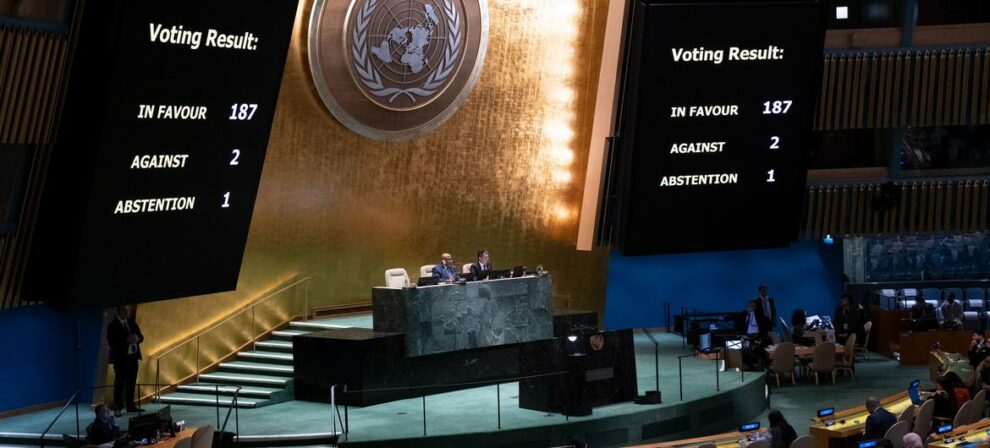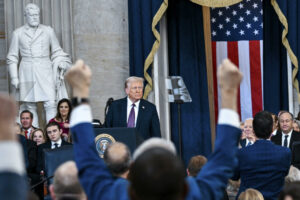The UN General Assembly on Thursday voted by a large margin against the United States’ economic and trade embargo against Cuba, first imposed in 1960.
Titled “Necessity of ending the economic, commercial and financial embargo imposed by the United States of America against Cuba,” the resolution put forward each year against the embargo garnered support from 187 states, with only the United States and Israel casting against and Ukraine abstaining.
Debate on the resolution began Wednesday and extended into Thursday.
The General Assembly reiterated its call for all states to refrain from promulgating and applying such restrictive laws and measures in line with their obligations under the UN Charter and international law.
The more than 60-year blockade violates the rights of all Cubans, said Cuban Foreign Minister Bruno Rodriguez Parrilla, noting that 80 percent of the population in his country has never known life without the crippling U.S. blockade.
Cuban Foreign Minister Bruno Rodriguez Parrilla speaks before a vote against the United States economic and trade embargo against Cuba at the UN headquarters in New York, on Nov. 2, 2023.(Evan Schneider/UN Photo/Handout via Xinhua)
He added that it is “an act of economic warfare, in times of peace,” creating a situation of ungovernability and an attempt to destroy the constitutional order.
Aurelie Flore Koumba Pambo, representative of Gabon to the UN, voiced her country’s concern over the continuing embargo.
“The scale of its impact is more and more harmful to the Cuban people,” she said during the debate, noting that the economic blockade is “clearly a hostile act to region and continental cohesion.”
She called it an “obstacle to the social and economic development of Cuba.”
Peruvian UN Ambassador Luis Ugarelli said his country “shares the view of practically the entire international community” that the embargo is against the principles of the UN Charter and international human rights law, noting Peru would support the resolution, as it has done for more than 30 years.










